This Week's Script Cavalcade: Bed, Bath and Beyond
Will & Grace is I Love Lucy… if Ricky Ricardo and Fred Mertz just happened to be queer. It’s a genius variation on the traditional sitcom that, in its day, helped to broaden the types of people and friendships that could be depicted on the small screen. Despite its sometimes exaggerated characterizations and decidedly un-PC humor, Will & Grace helped to make gay culture more visible and accessible to contemporary America. And let’s face it, it did so by making us belly laugh.
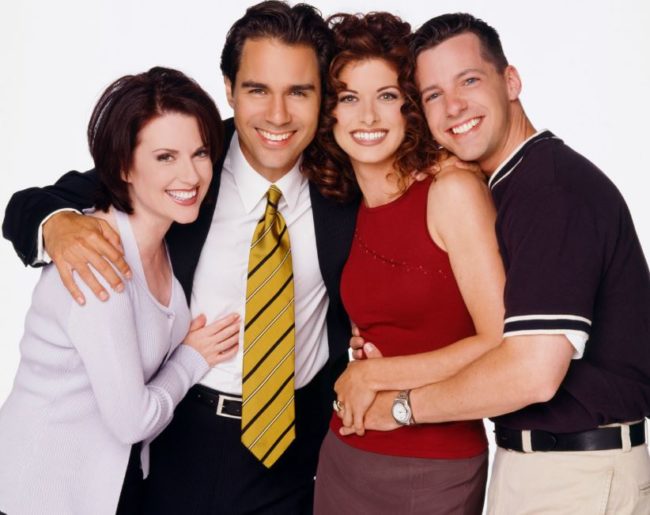
Deep, gut-based cackling is ultimately the point of the situation comedy, or “sitcom,” which I will go ahead and define as:
a series in which a fixed set of characters find themselves in a new comedic situation during each individual episode.
Because the format requires a consistent set of characters to get into shenanigans week after week, it’s no surprise that many sitcoms are about families. Of all the sitcoms to revive for our current times, Will & Grace seems, in my mind, a great choice. This is because, in addition to all the laughter, it helps to remind us of the types of chosen and non-nuclear families and support systems that can be found out in the world.
The WGF Library has almost the entire original run of Will & Grace scripts. I’m writing this blog post because – revival aside – the show provides an ideal study for writers looking to understand the mechanics of sitcom writing, especially the kind with one foot in tradition and one foot in attempting to push the format further socially. They’re scripts that offer basic instruction to those who read them on how to mix belly laughs with sweetness and feeling.
Let’s dive in to a script from the fourth season of the show called “Bed, Bath and Beyond.” Written by Jhoni Marchinko, this episode aired November 8, 2001, a time when America found itself turning to sitcoms for comfort in the immediate aftermath of 9/11.
Like a good gift, the best television episodes often come in the most plain and simple of packaging. “Bed, Bath and Beyond” and other episodes of its ilk are fantastic for reading because they utilize no guest stars. The story is also confined to just the main location of the series (in this case, that’s Will and Grace’s apartment). If you’re a writer trying to churn out a spec script for a sitcom, these will often be the tools or basic elements at your disposal.
In its 38 pages, this script tells the story of how—after expecting a marriage proposal from her boyfriend Nathan, but instead getting dumped—Grace is so full of misery and self-pity that she refuses to get out of bed. Beginning to worry, Will tries everything he can to get Grace up and moving and back out into the world.
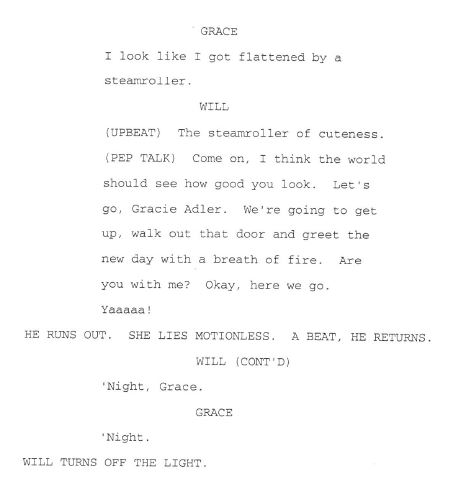
That’s it. There’s one situation and one clean line of action to resolve it. The comedy in the episode comes particularly from Jack and Karen’s inability to help Will achieve this task in a helpful and sensitive way. Bedridden and sad, Grace plays “the straight woman” to their outrageous antics.
Watch how Jack tries to cheer Grace up by singing a medley of songs...
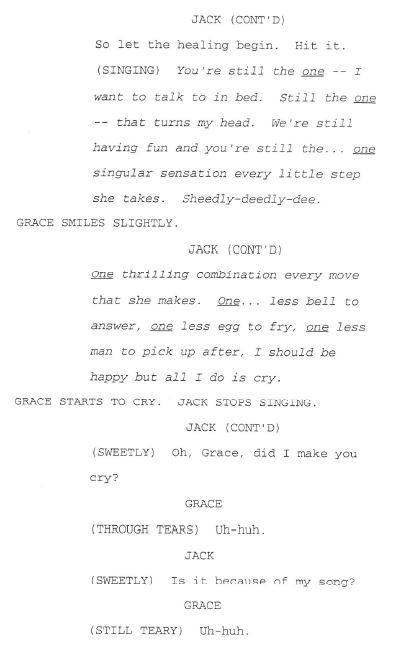
...but he only makes her feel worse.
Watch how Karen resorts to demanding help from Rosario…
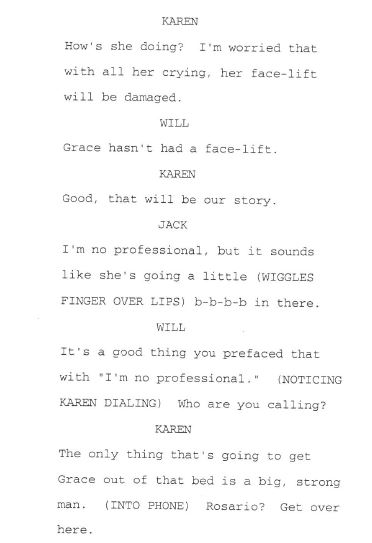
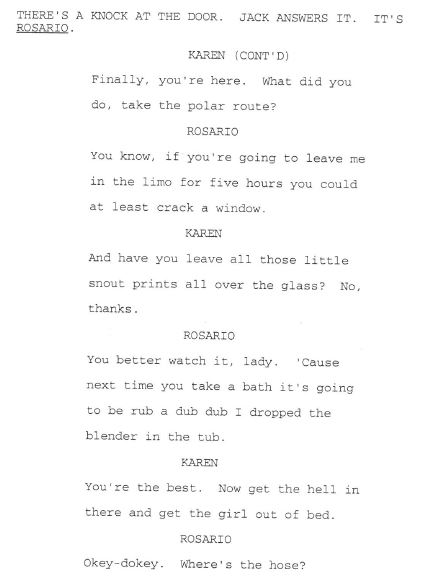
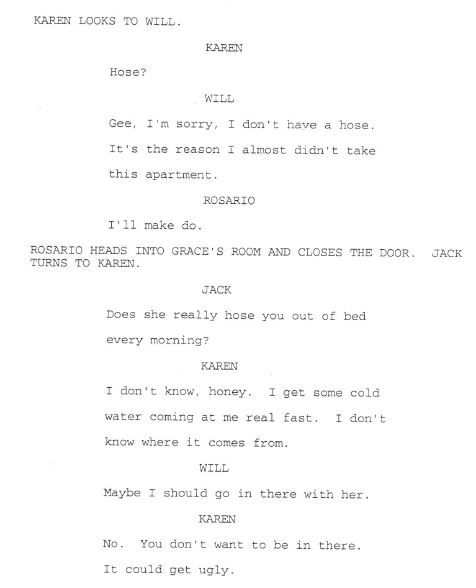
When Rosario gets into the bedroom with Grace, she’s forced to play the straight woman as Grace inundates her with slides from her childhood, trying to determine where it all went wrong and delivering this tour de force monologue:
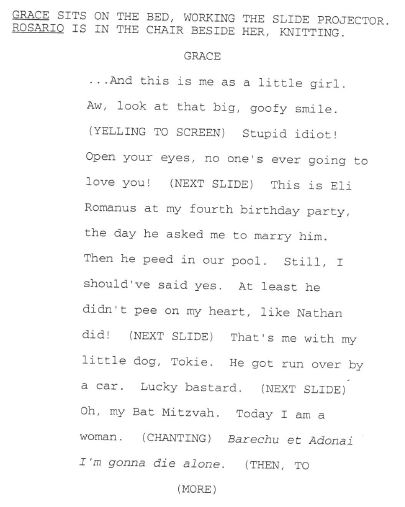
Running out of options, the gang eventually resorts to tossing Grace into the shower to “wash that man right out of her hair” but she counters by slipping out of their grip and telling them that she’s just not ready, that she must allow herself to be sad in her own way before she can feel better. In doing this, she tells each of them that she’s just not as strong as they are, inadvertently reminding each of them of the things in their lives that they could be heartbroken about.
She bums them out until they feel like going to bed and never getting up.
One of the final images—Will, Grace, Jack and Karen all lying in bed together—gives rise to the ultimate lesson of the episode. Crises and periods of woe are easier to bear when you have friends and family who understand what you’re going through and stand by you.

In polarizing and challenging times, this is the heart of the story that rears its head underneath the laughter. It’s a message that resonates.
While you're at the library reading up on Will & Grace, be sure to check out some new additions to the collection, including:
- A handful of scripts from The Bold Type created by Sarah Watson
- Scripts from The Carol Burnett Show from the recently acquired Arnie Kogen collection
- Scripts from 1996's Early Edition created by Ian Abrams, Bob Brush & Patrick Q. Page
- The feature screenplay for Logan Lucky Written by Rebecca Blunt.
For more scripts, please search our ever-expanding library catalog and follow the Writers Guild Foundation on Twitter.
